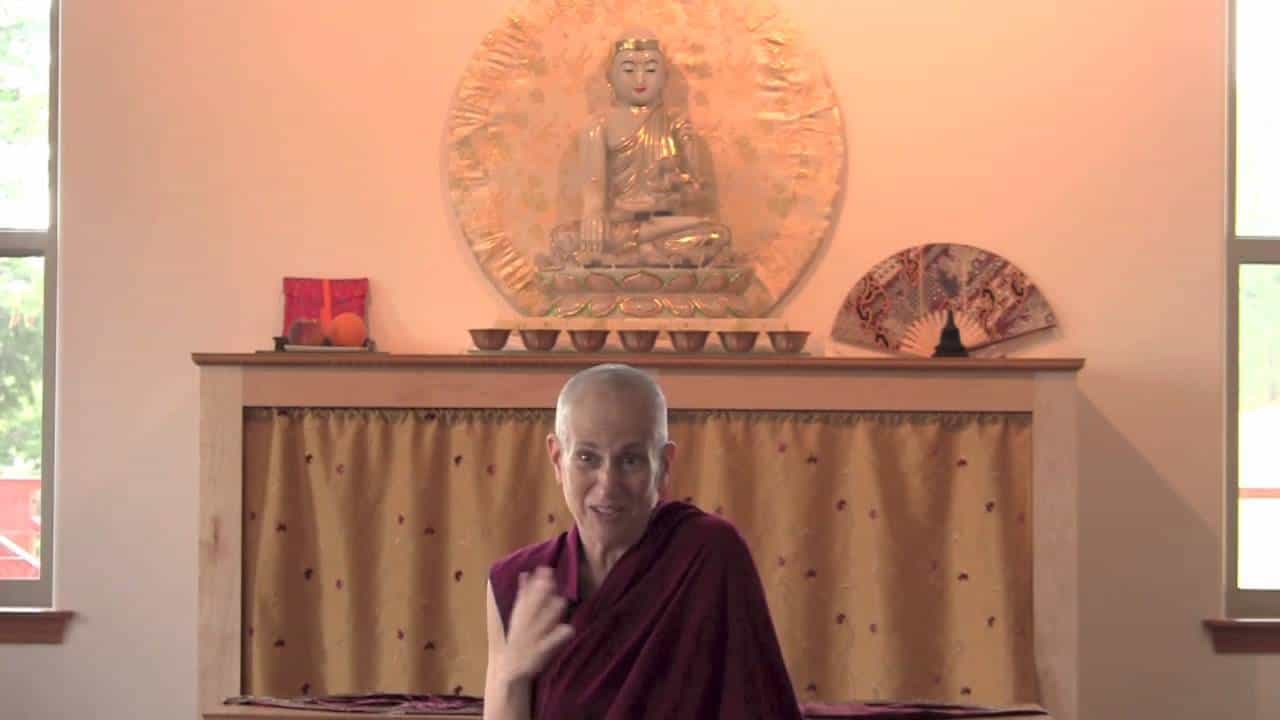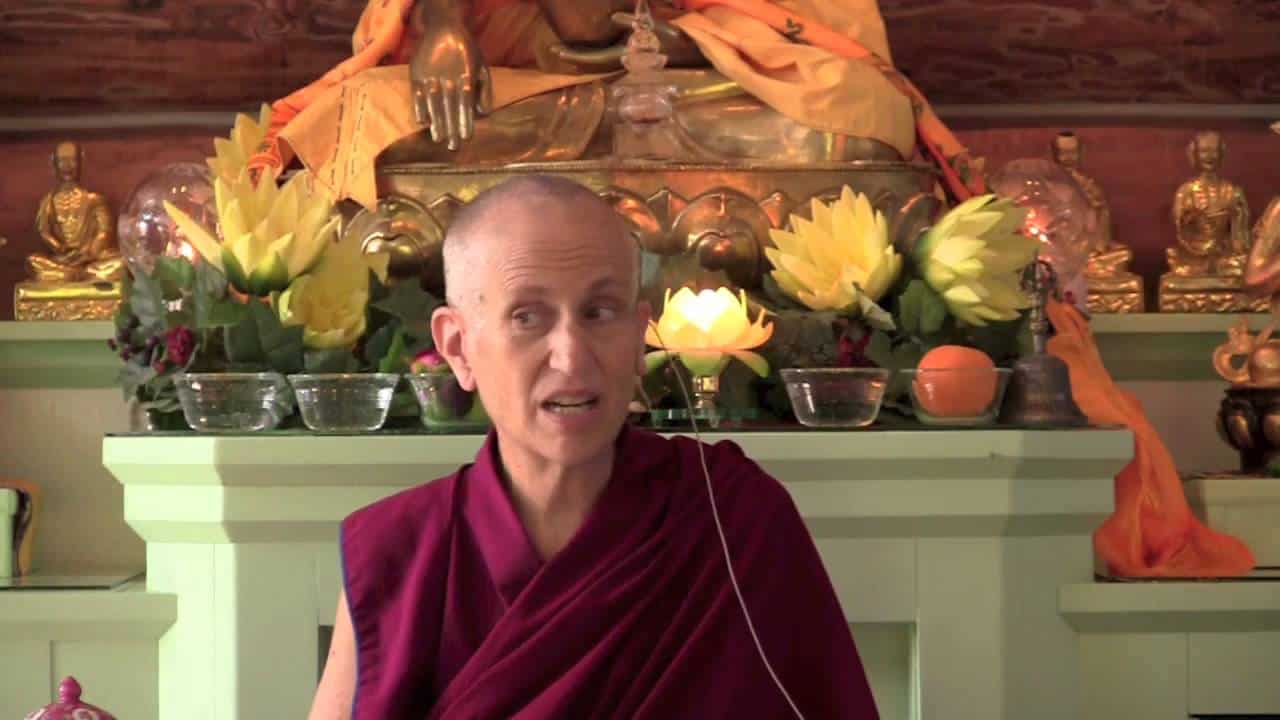Verse 49: The parrot
Part of a series of talks on Gems of Wisdom, a poem by the Seventh Dalai Lama.
- Our ability to communicate is very powerful
- We can use our speech in a good way, to encourage people help people
- If we speak recklessly we lose the opportunity to be of benefit, and we create messes in relationships
Gems of Wisdom: Verse 49 (download)
Who, like the parrot, becomes trapped by his own ability to speak?
He who talks recklessly with no heed for the impact of his words.
Our ability to communicate—our speech and and also how we communicate physically as well—is very, very powerful. And when they talk about how the Buddha benefits sentient beings, the chief way the Buddha benefits sentient beings is by teaching—through his speech. So we always see the speech of the Buddha as one of the most holy things because that’s really how the Buddha benefits us. Not as much by physical deeds. We can’t contact the dharmakaya by ourselves. But it’s through the speech, through teaching the Dharma.
Similarly, our speech can be very powerful. We can use it in a good way—to help people, to encourage people, to soothe their suffering, to teach them the Dharma, to clarify points, to do many good things with our speech and all the different ways we have of communicating, including writing and stuff like that. So many opportunities to really be of benefit.
Yet, if we talk recklessly—like this parrot—we not only lose that opportunity but we create a lot of messes. So it can be quite interesting to look, to do a little life review in terms of our speech and how we’ve used our speech, and really examine lying and creating disharmony. How we talk behind people’s back, and we tell this one what that one said to line up people on our side against somebody else. And then harsh speech, when we ridicule people, make fun of them, scream at them, say things even with a nice voice that we know is going to get them. And then idle talk, how we waste our own and others’ time. And really do some contemplation on that and check up, how do I use my ability to communicate? Do I use it with wisdom, with truth, with kindness? Or do I use it recklessly, like this parrot?
Because we can see, when we come into a situation and we’re just talking to hear ourselves talk, to share our wonderful opinions and how much we know about this and that and the other thing. And then insinuating that other people aren’t quite as good as we are. Or outrightly making them miserable through how we speak to them. It has a very strong effect. So to be really aware of this. As the parrot, one who speaks recklessly without any awareness of the effect of his speech.
This morning we talked a little bit about that. About causes and consequences and thinking about the results of our actions. And so especially doing that with our speech.
And it’s not always so easy because we’re used to “pops in the mind, comes out of the mouth,” and then we go, “Oh no, what did I just say?” So it really takes some training to slow ourselves down a little bit and think of what we’re going to say, and is it skillful, is it necessary, how could it affect the other person. We never know exactly how it’s going to affect them, but at least we can stop and think about it, and check what our own motivation is.
Because if we really try and make it a habit to use our speech to encourage people and to point out their good qualities we can do a lot of good with it. Especially using it—even if we’re talking to people who aren’t Buddhist—you can talk about Buddhist meanings and techniques that they can use to help them in their lives without speaking a lot of Sanskrit/Pali words, and that can be very helpful to people.
[In response to audience] For sure. Small things like that can have very powerful effects. Small compliments. Small ways of pointing out somebody’s good quality or something you appreciate about what they did.
Venerable Thubten Chodron
Venerable Chodron emphasizes the practical application of Buddha’s teachings in our daily lives and is especially skilled at explaining them in ways easily understood and practiced by Westerners. She is well known for her warm, humorous, and lucid teachings. She was ordained as a Buddhist nun in 1977 by Kyabje Ling Rinpoche in Dharamsala, India, and in 1986 she received bhikshuni (full) ordination in Taiwan. Read her full bio.


